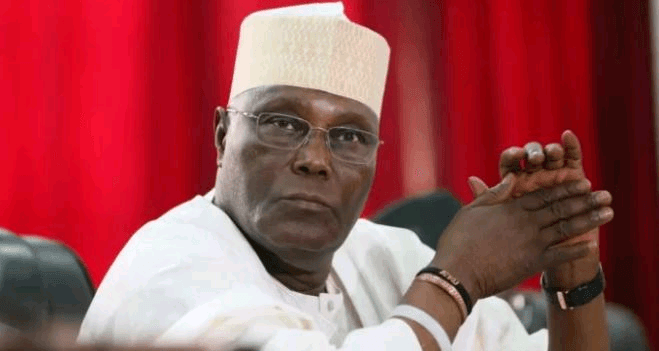By Abba Dukawa
When former Vice President Atiku Abubakar, the Waziri of Adamawa, called on the Federal Government to comply with court rulings regarding the release of Nnamdi Kanu, leader of the Indigenous People of Biafra (IPOB), he echoed a fundamental truth — that no democracy can thrive without respect for the rule of law.
All right-thinking Nigerians and advocates of judicial independence will agree that Atiku’s emphasis on respecting court decisions underscores one of Nigeria’s gravest institutional problems — the erosion of judicial independence. The continued detention of Kanu, despite clear court orders granting him bail, is a moral and legal blemish on the country’s justice system.
Atiku’s call is not about politics; it is about principle. His position reflects his long-standing advocacy for fairness, equity, and justice — values that transcend ethnic or religious boundaries. As a statesman, he has every constitutional right, under Section 39 of the 1999 Constitution, to express his opinion on issues that threaten national unity or governance.
Unfortunately, some self-serving commentators, in their desperate bid for attention, have resorted to twisting Atiku’s statement and spreading falsehoods on social media. One such individual recently granted an interview to DCL Hausa Radio, exposing not just his ignorance of Nigeria’s legal system, but also his bias and poor grasp of national issues.
This individual questioned why Atiku had not demanded the release of DCP Abba Kyari — a comparison that betrays a shallow understanding of the law. Unlike Kanu, whose bail has been granted and ignored, Kyari is facing ongoing trial over drug-related charges filed by the National Drug Law Enforcement Agency (NDLEA). A Federal High Court in Abuja ruled in April that Kyari and others have a case to answer. How, then, can anyone genuinely committed to the rule of law call for his release without a court order?
The distinction is simple but profound — one man has been granted bail and remains unlawfully detained; the other is being tried in accordance with due process. To conflate both cases is not just misleading but intellectually dishonest.
Rather than peddling such distortions, these self-styled commentators should redirect their energy toward issues that truly matter — the worsening insecurity, kidnapping, drug abuse, and poverty ravaging Northern Nigeria. Drug abuse, in particular, has become a social epidemic in the region, fuelling violent crimes, armed robbery, terrorism, and domestic abuse. These are the issues that demand collective attention, not petty attacks on a statesman exercising his democratic rights.
Atiku Abubakar’s position is unambiguous: Nnamdi Kanu should either be released in compliance with court rulings or prosecuted lawfully — not detained indefinitely. That is not a political statement; it is a call for justice and respect for the Constitution.
Nigeria’s democracy will remain fragile for as long as those in power treat judicial pronouncements as optional suggestions. Disregard for the rule of law undermines confidence in the courts and breeds cynicism among citizens.
True patriots must insist on accountability and respect for due process, not use the media as a stage for personal relevance. Silence in the face of injustice is complicity.
We have addressed these attention-seeking critics with decorum and restraint. But should anyone again insult the Waziri of Adamawa under the guise of commentary, they should be prepared to face factual rebuttals. Kano, the cradle of progressive thinkers like Aminu Kano, Sabo Bakin Zuwo, and Abubakar Rimi, does not breed cowards — it breeds men of conscience and conviction.
Dukawa writes from Kano. He can be reached at abbahydukawa@gmail.com
